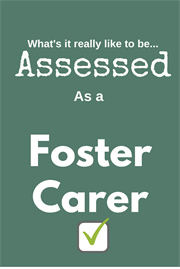Heart-warming stories from families opening their doors to children in care over the festive season.
Christmas can be a hard time for some families, and especially for children in foster care. We asked our foster parents and social workers to share their experience of fostering over the festive season and this is what they said….
"We had a little boy with us for Christmas, and we’d bought him a LEGO castle. He loved it and spent the whole of Christmas morning building it with my husband. When we came back through to the lounge after our Christmas dinner, the castle was gone. All of the toys had gone. “Where have all the toys gone?” I asked. He looked anxious. I said “it’s ok, just tell me”. “Upstairs” he whispered. We went upstairs, and there hidden at the very back of his bed was all the toys. “Mum and dad always sold them” he said “I was keeping them safe.” He kept his toys in his room for a week before gradually bringing them downstairs to play. Foster Carer
“We had a teenage girl with us one Christmas. She had never had much of a Christmas at home. We are really into Christmas so we woke her up in the morning and showed her downstairs to the tree. We had to show her what to do. She was delighted even with just the little bits of make-up we had bought her” Foster Parent
“We had a foster child arrive on 23rd of December and had to rush out and quickly buy some presents” Foster Parent
“We still have the decorations that some of our foster children have made, and when they come back to visit, they see that the decorations are still on the tree” Foster Parent
“The children couldn’t believe that all of the presents were for them, and they could keep them” Foster Parent
 “We were really looking forward to Christmas with our foster child. We had it all planned. But he was overwhelmed by it all, gathered up all his presents and spent the whole day in his bedroom.” Foster Parent
“We were really looking forward to Christmas with our foster child. We had it all planned. But he was overwhelmed by it all, gathered up all his presents and spent the whole day in his bedroom.” Foster Parent
“We asked a foster carer if they could care for a child over Christmas. They had to quickly phone their family who were on-route to visit for Christmas, to change their plans because there was no room for them” Fostering Social Worker
“Mum arrived for contact with bags and bags of presents. Some of the presents were not age-appropriate. They were for a much younger child - the age the children were, when they first went into foster care.” Foster parent
"Some children can find Christmas quite difficult. The whole routine changes. Even the school routine is different with practicing for the Christmas play etc. It’s all too different and a bit overwhelming.” Fostering Social Worker
“The foster carers had bought the children lots of presents, because they had nothing. Then the grandparents of the children arrived with another load of gifts.” Fostering social worker
“The foster carers had bought the children lots of presents, because they had nothing. Then the grandparents of the children arrived with another load of gifts.” Fostering social worker
“Most Christmas Eves, we get asked to place around 5 children in foster care and we are phoning around our foster carers asking if they can care for a child over Christmas. But often the plan changes and the children don’t need foster care after all, panic over. Our foster carers are always brilliant and take it all in their stride” Fostering Social Worker
Christmas can be a difficult time, but our wonderful foster carers welcome children into their homes to share Christmas dinner, open presents and feel like part of the family.
Wishing you a very merry Christmas
From the Fostering Team








